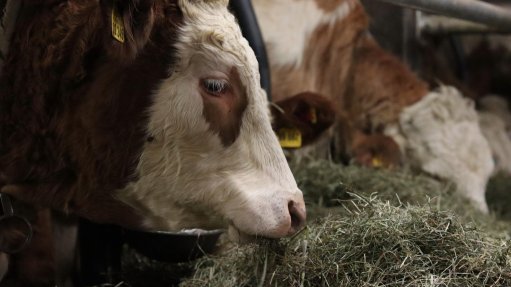Alstom at the forefront of rail development in Southern Africa
Rail transport and infrastructure development in Southern Africa is expected to increase in the upcoming years owing to rapid urbanisation, population growth and increasing environmental concerns, and Alstom is well poised to contribute to this, says Alstom South Africa CEO Xavier Boisgontier.
Citing President Cyril Ramaphosa’s June State of The Nation Address, Boisgontier tells Engineering News Online that the South African government is serious about building better transport links, and even possibly high-speed trains.
“South Africa needs more rolling stock and could benefit from integrated urban transport solutions such as tramways, as well as the modernisation of its infrastructure and existing rolling stock,” he emphasises.
He points out that the country’s suburban trains, which carry approximately a million commuters a day, have had many years of inadequate investment, with the average age of South Africa’s suburban trains being 40 years.
However, the Passenger Rail Agency of South Africa (PRASA) has taken measures to address this, through the launch of a rolling stock tender in 2011.
This is aimed at upgrading the passenger railway network through the acquisition of an initial batch of 600 trains (3 600 cars) over a ten-year period, as well as the upgrading of rail infrastructure and modernisation of rail signalling infrastructure.
This tender, which was awarded to the Gibela Rail Transportation Consortium in which Alstom holds an interest, was designed to include a local production strategy, as well as to provide the country’s population with modern, reliable and efficient suburban railway transport, notes Boisgontier.
He highlights that an integral element of the programme is the revitalisation of the South African railway industry and the acquisition of related industrial know-how.
“This is now a reality – new trains are being built by South Africans, with local suppliers, at Africa’s largest and recently completed, manufacturing plant, Gibela; a footprint that is strengthened through the adjacent, recently modernized 80 000 m2 Alstom Ubunye Factory.
“Six South African-made X’trapolis Mega commuter trains have been delivered to PRASA,” he acclaims.
With the government’s immediate focus set on the responsibility of fixing the rail service for the working class, Boisgontier indicates that Alstom’s footprint in South Africa is currently dedicated to this goal, with a future vision to offer a full range of solutions to South Africa and the rest of Africa.
Green and smart mobility is encouraged by customers’ and passengers’ expectations. Alstom has a clear ambition: to be the leading global innovator in sustainable and smart mobility.
“Thanks to our strong local industrial and commercial base with a full range of rail products and solutions, Alstom is ready to support the future transport needs of African countries,” he says.
Boisgontier enthuses that Alstom has already proven itself to be a key player in the South African rail industry through its two joint ventures with local partners.
He says Alstom Ubunye (Level 4 black economic empowerment, or BEE) and Gibela (Level 2 BEE) are well established South African companies, with more than 1 500 local employees. Its South African workforce constitutes more than 30% of Alstom’s Middle East and Africa cluster and about 5% of the global Alstom employee base, he informs.
In the country, the company is engaged with a unique skills and technology transfer and a strong training programme for employees.
In addition to its long-term ambitions for the country, Alstom is also making an impact on local communities through several significant social investment programmes in the local Ekurhuleni community.
Alstom is committed to developing the rail industry in South Africa, emphasises Boisgontier. The company embraces the comprehensive development of South Africa, and further demonstrates commitment to the people and communities in the greater Nigel region in partnership with the Ekurhuleni metropolitan municipality, he adds.
Alstom and its South African partners have developed a manufacturing hub in Ekurhuleni that is a catalyst for the country’s railway industry revival, says Boisgontier.
Alstom has identified regional suppliers of critical components to benefit from the supply chain development processes to increase production capacity and effectiveness. By doing so, the contribution of the manufacturing sector to the South African gross domestic product will increase, he posits.
“We are perfectly positioned to support the growth of public transport in South Africa and indeed in the region,” says Boisgontier.
“Alstom has proven itself to understand the country and its challenges. Alstom is fully committed to support its customers, such as PRASA, as well as contribute to the development of the country by creating jobs, supporting local skills development, developing a local supply chain and investing in local communities.”
Article Enquiry
Email Article
Save Article
Feedback
To advertise email advertising@creamermedia.co.za or click here
Comments
Press Office
Announcements
What's On
Subscribe to improve your user experience...
Option 1 (equivalent of R125 a month):
Receive a weekly copy of Creamer Media's Engineering News & Mining Weekly magazine
(print copy for those in South Africa and e-magazine for those outside of South Africa)
Receive daily email newsletters
Access to full search results
Access archive of magazine back copies
Access to Projects in Progress
Access to ONE Research Report of your choice in PDF format
Option 2 (equivalent of R375 a month):
All benefits from Option 1
PLUS
Access to Creamer Media's Research Channel Africa for ALL Research Reports, in PDF format, on various industrial and mining sectors
including Electricity; Water; Energy Transition; Hydrogen; Roads, Rail and Ports; Coal; Gold; Platinum; Battery Metals; etc.
Already a subscriber?
Forgotten your password?
Receive weekly copy of Creamer Media's Engineering News & Mining Weekly magazine (print copy for those in South Africa and e-magazine for those outside of South Africa)
➕
Recieve daily email newsletters
➕
Access to full search results
➕
Access archive of magazine back copies
➕
Access to Projects in Progress
➕
Access to ONE Research Report of your choice in PDF format
RESEARCH CHANNEL AFRICA
R4500 (equivalent of R375 a month)
SUBSCRIBEAll benefits from Option 1
➕
Access to Creamer Media's Research Channel Africa for ALL Research Reports on various industrial and mining sectors, in PDF format, including on:
Electricity
➕
Water
➕
Energy Transition
➕
Hydrogen
➕
Roads, Rail and Ports
➕
Coal
➕
Gold
➕
Platinum
➕
Battery Metals
➕
etc.
Receive all benefits from Option 1 or Option 2 delivered to numerous people at your company
➕
Multiple User names and Passwords for simultaneous log-ins
➕
Intranet integration access to all in your organisation




















